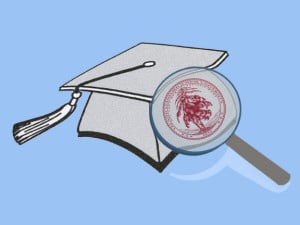Building on the successes of other summer bridge programs, such as the Stanford Summer Engineering Academy and Stanford Pre-Orientation Trips, starting in fall 2012 Stanford’s Leland Scholars Program (LSP) will offer a three-week, residential program for incoming science-oriented freshmen from under-resourced backgrounds.
Through the initiative, created by the Office of the Vice Provost of Undergraduate Education (VPUE) as a three-year pilot program, 35 students — along with seven residential staff — will spend three weeks on-campus in August while enrolled in a two-credit science course. LSP students will also have access to additional advising and exclusive seminars throughout the academic year.
Warren Chiang, director of the Leland Scholars Program, said that the program’s focus on science-oriented students reflects the demanding nature and pace of first-year coursework, which can make the transition to university-level thinking in those subjects more demanding and decrease retention rates among freshmen.

“We hope that by giving students a ‘taste’ of the academic year experience, they will be able to take advantage of some aspect of the program that is most useful for them,” Chiang wrote in an email to The Daily.
Chiang added that in addition to academic coursework and advising, the LSP offers assistance for incoming students through “fostering community among the Scholars, familiarizing students with pertinent campus resources and helping students feel prepared and excited for their freshman year.”
The program, which was developed in partnership with the University’s chemistry department, will employ Jennifer Schwartz, a chemistry professor, as the faculty instructor and curriculum designer.
Peer institutions — such as Princeton University and the University of California at Berkeley — have been offering similar programs to incoming students for a number of years. Chiang said extensive collaboration and discussion with those schools shaped LSP’s agenda.
“The critical components of these programs are similar — residential experiences, rigorous academic work and building a community of scholars,” Chiang wrote. “These are all aspects that have been shown to produce positive results for students.”
The program was first proposed in 2008, but the initiative was delayed until this upcoming academic year due to unfavorable economic conditions and resulting budget cuts. LSP’s introduction coincides with concerns expressed by faculty over the recent reduction in freshman year academic requirements, decreased from three quarters to one. Some faculty have argued that reducing first-year requirements will rob students of an adequate introduction to university-level education.
Martha Cyert, senior associate vice provost of undergraduate education, dismissed the timing as purely coincidental, attributing the program’s creation instead to the University’s improved fiscal situation. She added, however, that the VPUE plans to increase outreach efforts to freshmen in response to the reduction in requirements.
“The increased choice for students in their freshman year puts more responsibility on all students to make decisions about their education in the first year,” Cyert wrote in an email to The Daily. “Thus, for all students we plan increasing advising resources to help guide them.”
The LSP will undergo a ‘comprehensive review’ at the end of the three-year pilot stage in order to assess the program’s effectiveness and impact on students. Chiang expressed optimism that a favorable review of the program could potentially open the door for similar initiative.